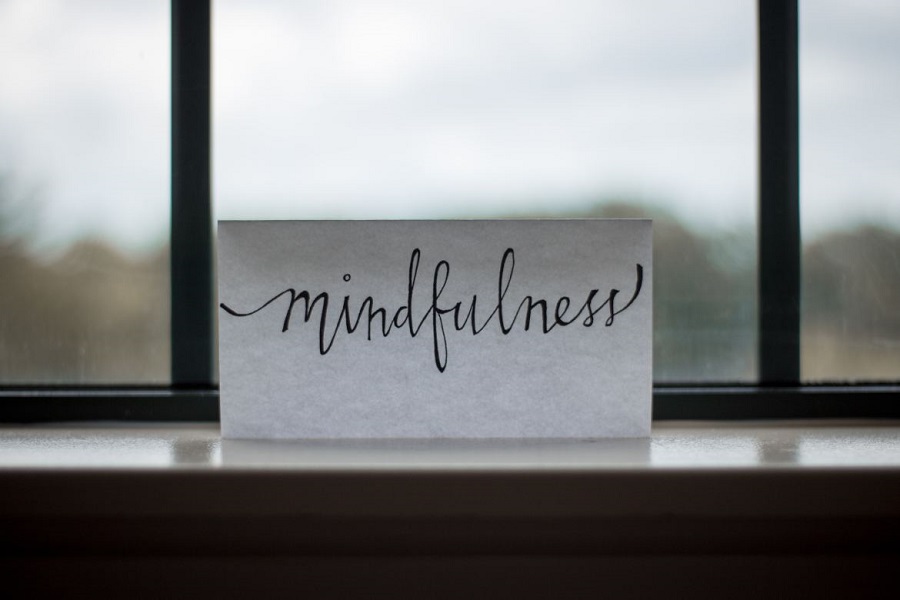Meditation (or mindfulness, contemplation, spiritual practice or prayer) is all the rage these days, and there are lots of ideas about these practices as well as many claims about what they can do for us. Perhaps we might become more peaceful, or spiritual, or our immune system will get better, or we will feel less stressed. Yet, often when we try to meditate all we encounter is a jumble of thoughts and feelings and it doesn’t seem like much of value is happening. So, what is this meditation thing anyway, why should we do it, and why does it help improve our health?
The truth is that our mind, that thing that perhaps lives in our brain, is a mystery to us. Even though we live with it every day, this strange mix of thoughts and feelings can seem like a stranger stuck between our ears. Often, we feel that our mind has control over us, not the other way around, and we experience ourselves as a victim of our thoughts and feeling states. We feel pressure to do certain things, act in certain ways, we are driven, or anxious, or depressed. Our stomach hurts when we think of something in particular or when we have to talk to a certain individual. Meanwhile ‘we,’ that sense of ourselves, sits in the middle of this jumble trying to do the best we can, wondering who are we anyway as we struggle not to feel too horrible about ourselves or our lives. And in clearer moments we might wonder, what is going on?
This question is as old as humanity and the great wisdom traditions of the world have developed methods for befriending this stranger and allowing ourselves to be empowered in our own mental world. These are the methods that are today popularly known as mindfulness, meditation, or contemplation and one way of understanding them is that they are simply mental hygiene: taking care of mind with loving kindness.
It turns out that our mind is much like a wild horse. If we put it in a small space with lots of constrictions it goes crazy, running like mad trying to get out all the while endangering itself in the process. However, if we put it in a large field with lots of space, it will run around for a bit but then it will calm down and graze happily. Meditation practice is akin to putting our mind in the big field. When we meditate we are not trying to achieve anything; we are not trying to be peaceful, or spiritual, or even have a quiet mind. The idea that we are making an effort to do these things is one of the most common misunderstandings of mediation and one of the most common reasons people think they are doing a bad job at their practice.
We cannot stop our thoughts or feelings. Rather, when we meditate we are simply developing our ability to pay attention to them and then let them go on their way. After a while, like the wild horse, our mind begins to slow down on its own. It turns out that this dual activity, developing awareness and the natural relaxation of the mind, has numerous benefits for our health and our life.
Recently, our scientific methodology has been confirming what spiritual teachings have been saying for millennia about meditation. The more we practice, the more we become open, relaxed, compassionate people. As we make friends with our mind we become awake and alive, are empowered, and less anxious. Mediation also facilitates many positive physical changes that are the reverse of the stress response. As we now know, chronic stress contributes to many of today’s rampant chronic illnesses, among which are all the auto-immune diseases.
However, none of these effects happen instantaneously which is why we talk about meditation practice. Just like practice for athletics or physical hygiene activities, we need to repeat them to get their benefit – We would never think that we could prevent lifelong tooth decay by brushing our teeth once!
With or without attending a class, you can always begin your meditation practice. Here is one very simple way to start:
- Sit in a comfortable position with your back straight, but not rigid. Your feet can be on the floor and your hands in your lap. You can also do this lying down – when we awake at night is a great time to meditate! Your eyes can be open or closed.
- Once you are comfortable simply draw your attention to your breath when you breathe out. Follow your breath into the room. Then simply return to paying attention to your thoughts, feelings, and bodily sensations as they arise. When you get caught up in your thoughts, just notice that and return to your breath.
- That’s it! It’s good to set a timer for a specific amount of time. 15 minutes is great but if you only have 5 minutes that fine as well.
- Do the practice as frequently or infrequently as you have time for. If you can only manage once a week, that’s fine for a start.
And remember, you’re not trying to do anything so you can’t do it wrong!


